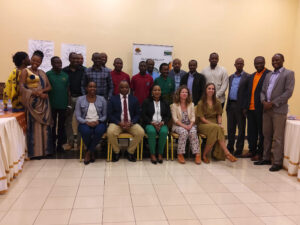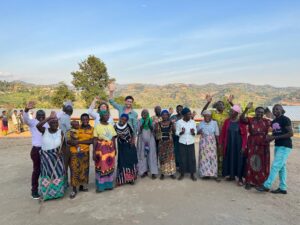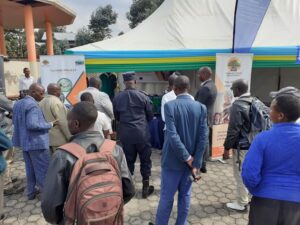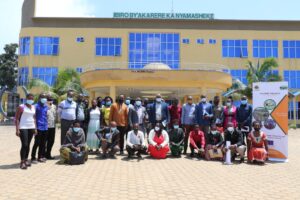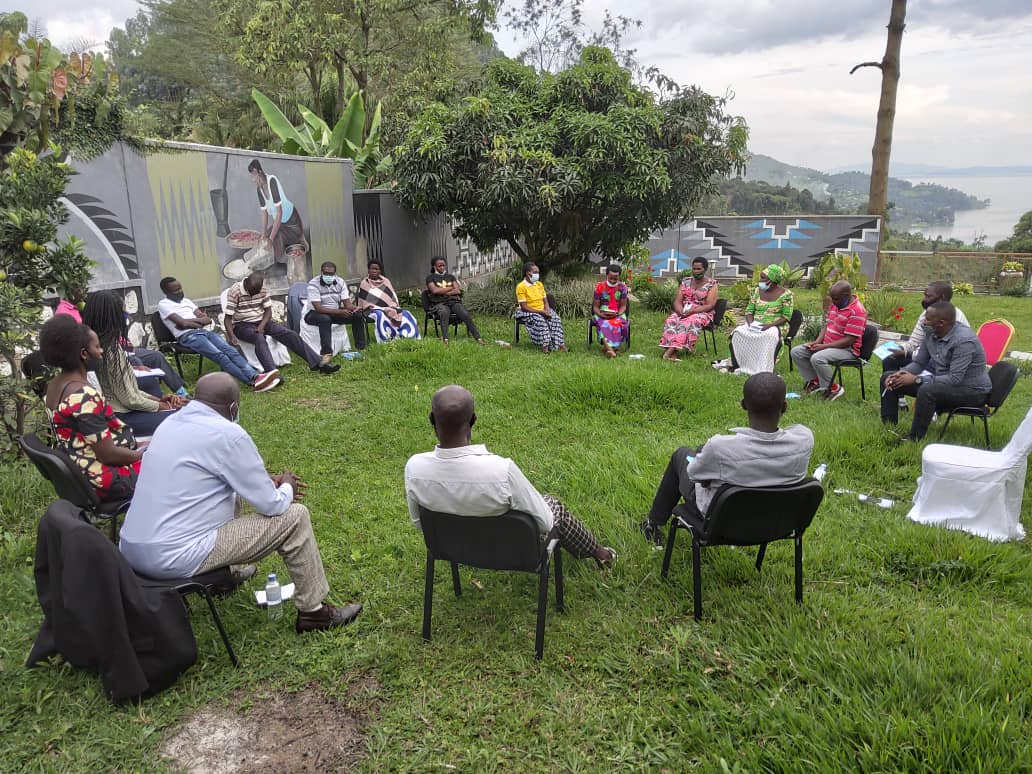
Tujyane project coordinator, Nicolas Habarugira, advocates advanced training as a platform whereby sociotherapists and sociotherapy trainers can share their observations and reflect on the progress of Mvura Nkuvure: challenges, successes and lessons learnt.
The first training a sociotherapist attends after being recruited is focused on basic skills of facilitating Mvura Nkuvure sessions. Later, after starting a sociotherapy group, the sociotherapist attends a follow-up training to assess progress in Mvura Nkuvure. Advanced training is organized when the sociotherapist has attended the two first trainings and has facilitated at least two rounds of Mvura Nkuvure groups (one round of Mvura Nkuvure goes for fifteen weeks). Nicolas affirms that this specialized, advanced training is an opportunity to go back to sociotherapy theories and combine these with practical knowledge to improve the way groups are facilitated.
“…for me I can say that the training is an additional training package because it brings additional practical knowledge to what we already learnt from the first two trainings and to what we experience in Mvura Nkuvure groups…” – Gisele Uwishema.
Uwishema is from Mukamira sector and has been a Tujyane sociotherapist since 2019. She is now running the fourth Mvura Nkuvure group in Nyabihu district. She says that thanks to the advanced training attended she now understands the difference between talking about the sociotherapy phase of “safety” and setting up a space of safety in practice. Uwishema explains that while talking about safety only promotes an understanding of what safety is, building safety is when a participant raises a problem and the problem is received and analyzed by the group members. “By establishing safety, we have to first of all understand the problem – we share the same feelings and later try to analyze it… safety dialogue is simply sharing information related to safety,” she said.
Uwishema promises that the practical knowledge gained from attending advanced training will help her and other sociotherapists to better facilitate Mvura Nkuvure.
Emmanuel Sarabwe, a sociotherapy trainer since 2007, clarifies that during training, sociotherapists are equipped with advanced knowledge to effectively run Mvura Nkuvure. He adds that a sociotherapy trainer also learns from the experience of sociotherapists. They inform the trainer of problems of the community where sociotherapy is being implemented, and a trainer can get feedback and provide psychosocial support when necessary. All in all, additional training sharpens the skills of both the sociotherapists and the sociotherapy trainer.
Reporting by Felibien Hirwa Tuzayisenga and editing by Anna Gwin

